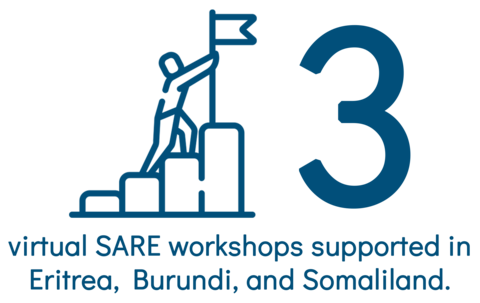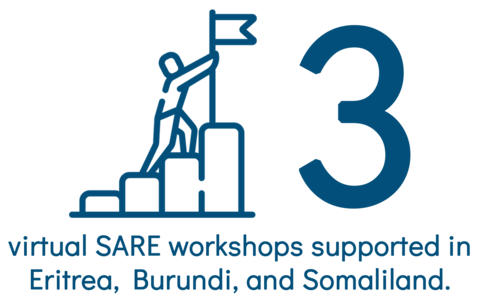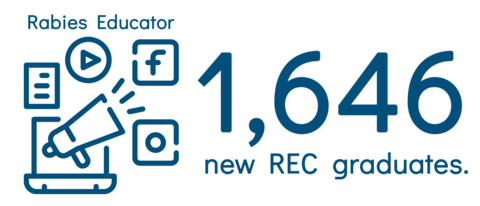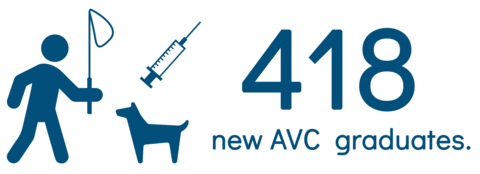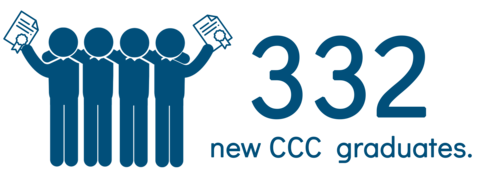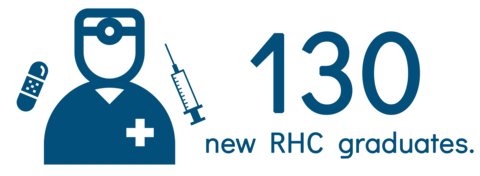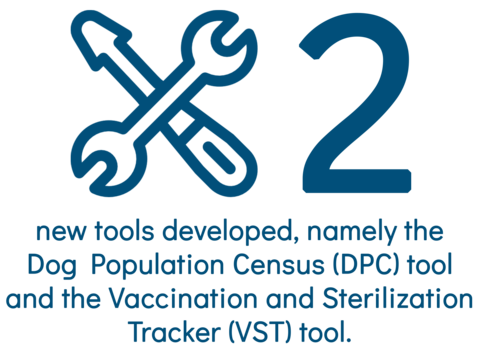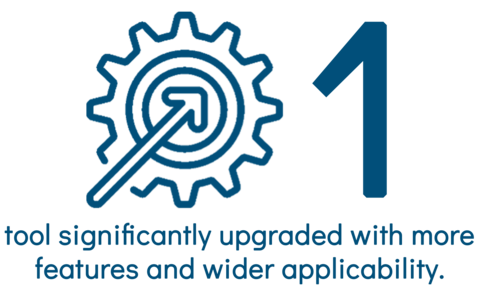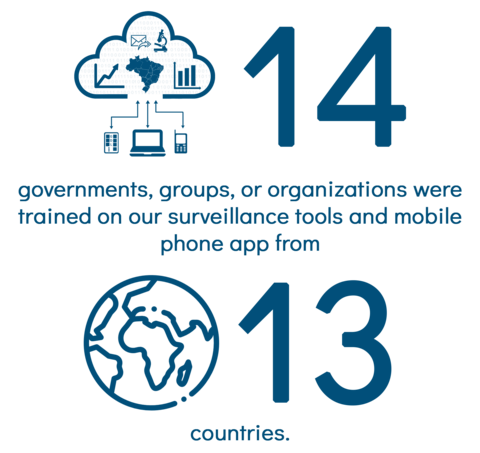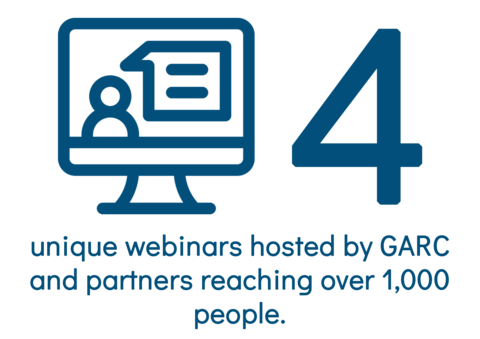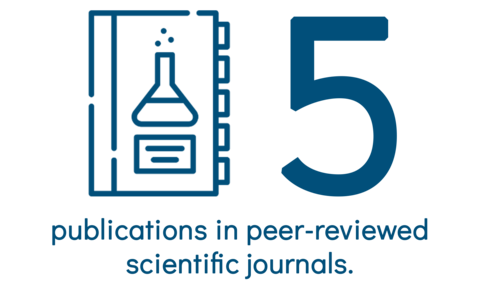Overview of the main activities of GARC in 2021
Many rabies activities around the world were hampered because of the global coronavirus pandemic. In the case of GARC, we endeavored to adapt and adjust in order to continue to provide the best tools, support, and expertise to our partners and stakeholders working towards the global elimination of dog rabies. Herewith a summary of our activities, thanks to our partners and supporters who continue to help make our work possible.
National Rabies Elimination planning and progress: SARE workshops
With the assistance of multiple collaborators, we were able to undertake six in-country SARE workshops during the year. The value of this achievement lies in the ownership taken by the individual nations for their rabies elimination efforts and the development of concrete work plans that are in-line with the Global Strategic Plan and the Zero by 30 goal.
In collaboration with the Food and Agriculture Organization of the United Nations (UN FAO), GARC implemented multi-stakeholder virtual SARE workshops in three Central African countries. During these workshops, a thorough assessment of each country’s rabies control program was used to facilitate the development of tailormade rabies elimination work plans.
In addition, we also provided technical support to three virtual SARE workshops that were undertaken by external facilitators. During these workshops, the facilitators were provided expert guidance from GARC, as well as detailed implementation guides to help them successfully host and facilitate an online SARE workshop. We are pleased that such activities would also help to ensure a growing panel of capable SARE workshop facilitators around the world.
GEP: Number of new graduates in 2021
Our free, online, self-paced education courses on the GARC Education Platform (GEP) provide knowledge, education, and training to the public and to professionals working on rabies elimination. In our current offering of four essential courses, we address key aspects of rabies education, awareness and control that are required to protect people and animals in the fight against rabies. Among others, these courses help to educate people and professionals about rabies, as well as about responsible dog ownership, bite prevention, vaccination, and treatment.
In 2021, we saw a record number of people graduating the four available courses.
The Rabies Educator Certificate (REC) is our foundational rabies education course. In 2021 alone, we had another 1,646 graduates, growing the total number of graduates to 10,135 since 2015.
The Animal Handling and Vaccination Certificate (AVC) course is a profession-specific course for animal health professionals that focusses on the safe, correct, and humane handling and vaccination of dogs and cats. In 2021, we had 418 AVC graduates (total = 2,352).
The Community Coordinator for Rabies Certificate (CCC) course offers an advanced qualification to REC graduates. This course focuses on One Health and coordination, as well as community leadership. This year, we had an additional 332 CCC graduates (total = 1,272).
The Rabies Healthcare Certificate (RHC) is our most recent course that refreshes and updates human health professionals in the prevention and treatment protocols of patients exposed to rabies (the latest recommendations for the effective treatment and care of bite victims and people exposed to rabies; based on the latest WHO guidelines).
Surveillance tools
Surveillance is essential to advocate for rabies elimination. Good surveillance ensures that accurate data-driven decisions are made and most importantly, helps to guide interventions in the most effective and efficient way. For these very reasons GARC developed the Rabies Epidemiological Bulletin in 2016 (REB), and we continue to develop and improve upon our suite of surveillance tools embedded in the REB. Given its versatility and growing uptake in the global rabies community, it is envisaged that the REB will increasingly contribute to national, regional and global elimination efforts.
Focusing on surveillance gaps, we created 2 new tools during 2021 – both available as part of our mobile phone app. The first tool was developed to ensure that private veterinarians and groups doing trap, neuter, vaccinate, release (TNVR) programs or mobile clinics were able to easily collect, manage, analyze, and report their data. The second tool was developed to help collect data for dog population counts using the Dog Population Census tool.
We have also improved upon our Rabies Case Surveillance tool. In addition to its use to track cases that have been diagnostically confirmed in a laboratory, the tool can now also be used to record suspect and probable animal and human cases in the field. This functionality includes the possibility to capture in-field diagnostic assays such as the antigen tests offered by lateral flow devices.
Online tool trainings facilitated
It is our aim to continue to develop tools that can help drive rabies elimination efforts in a most cost-effective and efficient manner. However, we also realize that it is important to provide support (that may include some training and technical assistance) to ensure that the use of these tools have the desired impact as it relates to the control and elimination of rabies.
Since our surveillance tools are designed to be easy to use, face-to-face trainings are generally not essential, and we were able to conduct various online trainings for beneficiaries across the world. In so doing we hosted 14 online training sessions that focused on various countries in Latin America, Africa, and Asia. It is our hope that these efforts will contribute to the capture and analysis of reliable rabies surveillance data towards effective decision-making processes and strategies.
Webinars during which GARC presented
While face-to-face workshops and meetings were not possible we hosted or participated in a number of webinars in collaboration with various of our partners. As for physical meetings, these virtual meetings were aimed at gathering experts and stakeholders and to share knowledge and ideas and to provide a platform for meaningful interaction on the road ahead for rabies control and elimination. We had over 1, 000 people registering for our webinars in 2021, helping us to have a wider reach than would have been possible with face-to-face meetings. These webinars focused on our rabies control networks’ participating countries, young professionals, and the public.
Scientific publications
Our work is fundamentally science based and we place a premium on peer-reviewed research outputs. This year, GARC added five scientific publications in peer reviewed journals – adding to our tally of over 50 scientific publications to-date. The 5 scientific publications from 2021 focused on providing neuroimmunological information about rabies to African students; understanding the knowledge, attitude, and practices for rabies of people living in Harare, Zimbabwe; a review of the situation in the MERACON network; considering the potential for joint cross-disease programs using snakebite and rabies; and developing diagnostic capacity in resource limited countries, such as Benin.
World Rabies Day
We are very happy that WRD 2021 was remarkably successful given the continued global preoccupation with COVID-19. This year, World Rabies Day focused on “Facts, not Fear”. You can read more about the successes of World Rabies Day and the World Rabies Day awards here.
Other activities
GARC continues to contribute to various groups and coalitions focused on animal health, animal welfare, neglected tropical diseases and rabies elimination. This year GARC joined the Action for Animal Health coalition that focuses on uniting different stakeholders towards improved advocacy for animal health globally. GARC is also contributing to the NNN One Health group (NTD NGO Network) that is generating a guidance document to complement the WHO NTD Roadmap. Our team is leading several workstreams in the United Against Rabies Forum Working Groups and actively contributing to several others. We also remain actively involved in the International Companion Animal Management (ICAM) coalition, given the intrinsic links between rabies elimination and humane companion animal management.
The year ahead
We would like to thank all our partners, supporters, volunteers, donors, and colleagues who have helped us to make 2021 such a success, despite the global challenges. GARC will continue to drive efforts towards the elimination of dog-mediated rabies, ensuring a better life for dogs and people all around the world. We appreciate your continued support and participation, and our collaborative efforts towards making our goal a reality.
We encourage all rabies champions, groups, organizations, and governments to get in touch so that we can all work towards rabies elimination. We encourage the continued growth of our education platform and advocacy efforts undertaken by the public and of course appreciate your support through donations. You can help us continue to build more sustainable momentum towards dog rabies elimination by supporting our efforts.
Article contributed by the GARC team
